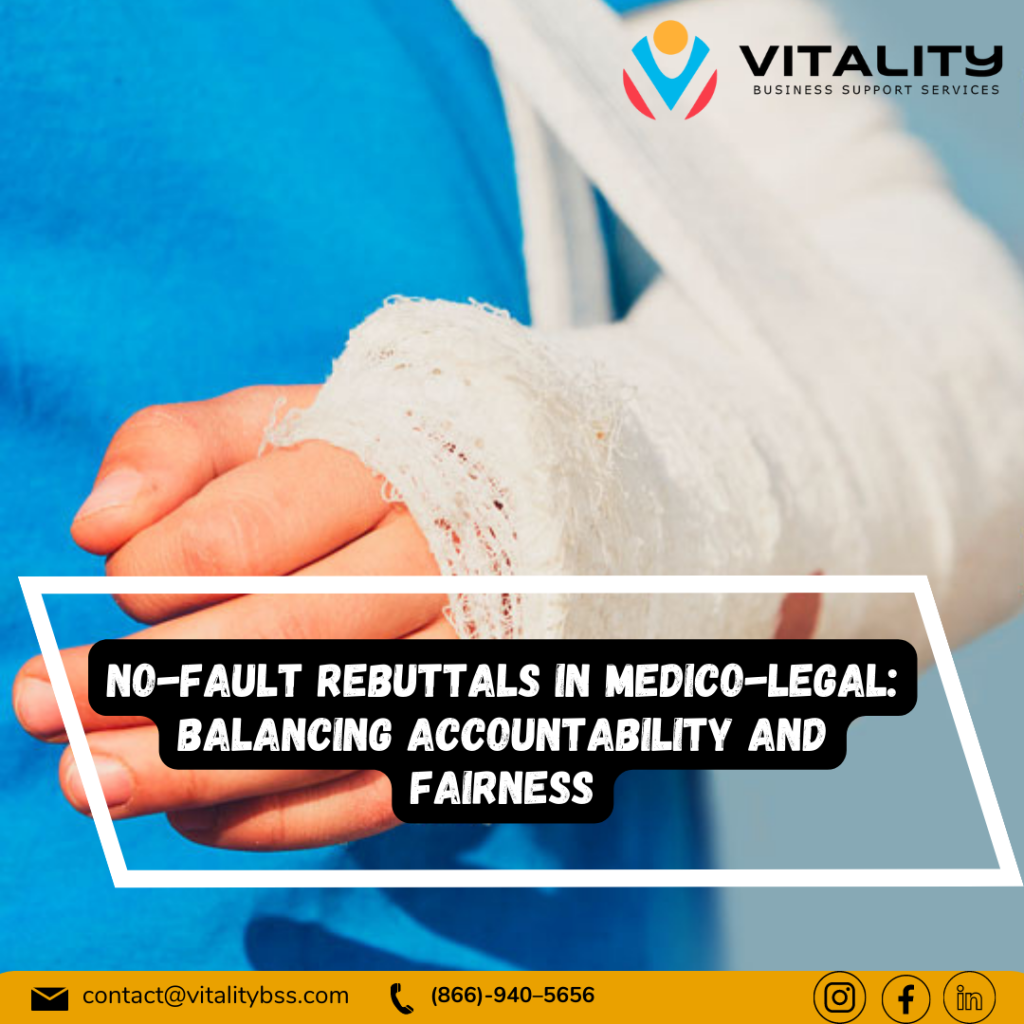Introduction:
Medico-legal cases involve the intersection of medical and legal realms, where the focus lies on determining liability, causation, and compensation for alleged medical malpractice. These cases often involve complex issues, requiring a careful examination of medical records, expert opinions, and legal frameworks. In recent years, the concept of “no-fault rebuttals” has emerged as a potential solution to improve the efficiency and fairness of medico-legal proceedings. This blog post explores the no-fault rebuttals concept and discusses its implications in the medico-legal domain.
Understanding No-Fault Rebuttals:
As a doctor, it’s important to understand the concept of no-fault rebuttals in medico-legal cases. Traditionally, these cases have relied on a fault-based approach, requiring the patient or their family to prove negligence or misconduct on the part of the healthcare professional or institution. However, no-fault rebuttals present a different perspective. They propose a departure from the fault-based system by presuming that certain adverse medical outcomes stem from system failures or known complications rather than individual negligence.
In a no-fault rebuttal system, the responsibility shifts to us, the defendants, as healthcare professionals or institutions, to demonstrate that we adhered to appropriate standards of care and that the outcome was not a result of our actions. This approach acknowledges that adverse outcomes can happen even without negligence and aims to strike a balance between accountability and fairness. It reminds us to be aware of system failures and known complications while ensuring we provide the best care possible.
Benefits of No-Fault Rebuttals:
- Efficient resolution: No-fault rebuttals can expedite the resolution of medico-legal cases by eliminating the need to prove fault in cases where the outcome is known to be a recognized complication or system failure. This streamlines the process, reducing the burden on courts and allowing them to focus on cases where a fault is genuinely in question.
- Reducing defensive medicine: The traditional fault-based system can sometimes incentivize healthcare professionals to practice defensive medicine, where they order unnecessary tests or procedures to protect themselves from potential legal actions. No-fault rebuttals provide a more balanced approach, reducing the fear of litigation and allowing healthcare professionals to focus on providing appropriate care.
- Fairness and transparency: No-fault rebuttals promote fairness by acknowledging that not all adverse outcomes are a result of negligence. It recognizes the complexities of medical practice and provides a framework for differentiating between true medical errors and unavoidable complications. This approach fosters transparency and trust between healthcare professionals and patients and promotes open discussions about treatment risks and outcomes.
- Learning and improvement: By shifting the focus from blame to system failures, no-fault rebuttals encourage healthcare institutions to critically analyze adverse events. This leads to the identification of patterns, implementation of preventive measures, and improvements in patient safety. The emphasis on learning and improvement can help prevent similar incidents in the future, benefiting the healthcare system as a whole.
Challenges and Considerations:
Implementing no-fault rebuttals in the medico-legal system is not without challenges. It requires defining clear criteria for cases eligible for no-fault rebuttals, ensuring transparency in decision-making, and addressing concerns about potential misuse. The role of independent expert opinions and the establishment of guidelines and standards of care are crucial for the fair and effective implementation of no-fault rebuttals.
Conclusion:
No-fault rebuttals present an alternative approach to medico-legal cases that shifts the burden of proof from the plaintiff to the defendant, focusing on system failures rather than individual negligence. While there are challenges to overcome, the concept holds the potential to improve the efficiency, fairness, and transparency of medico-legal proceedings. By striking a balance between accountability and fairness, no-fault rebuttals pave the way for a more collaborative and learning-oriented approach to healthcare, benefiting both patients and healthcare professionals.





